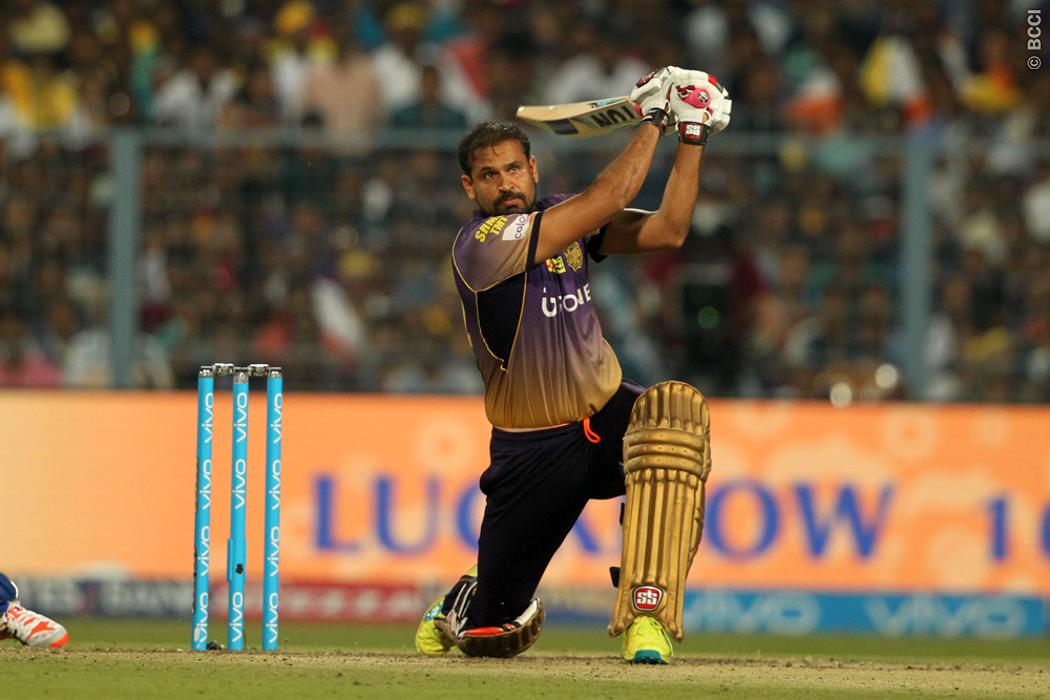BCCI’s ‘exclusivity’ is harming Indian players - and in turn Indian Cricket
On Saturday, Suresh Raina raised a very important issue pertaining to Indian cricket that has casually and completely slipped under the radar: the freedom for active cricketers to partake in overseas T20 leagues.

Yet a response from an anonymous BCCI official on the matter revealed everything we needed to know about the board’s take on the issue - long story short, they don’t give a rat’s arse about what the players think and feel, and are more than happy to keep extending their monopoly on the game of cricket, irrespective of the spiral effect it has on its players and, effectively, the country itself. Okay, that might be a tad exaggerated. But that truth remains that the board, at times, has continued to feed its own ego and prioritize financial needs, which, knowingly or unknowingly, has had a cascading effect on many of its cricketers.
As things stand, India is the only cricketing nation in the entire world that has barred its players from partaking in T20 leagues outside of its own country. And if you think that the agreement - that of Indian players not participating in T20 leagues elsewhere - is mutual, it’s not: as reported by ESPN Cricinfo, back in 2012, there was a cold-war between the board and several players, all of who were denied permission to partake in overseas T20 leagues, including the Big Bash and the Sri Lankan Premier League.
And the board have their very own reason for doing so - the astronomical rise of the IPL has meant that the BCCI has envisioned a monopoly of sorts, where the league is head and shoulders above every other competition in the sport. And for the idea to come to fruition, the board played its trump card - barring Indian cricketers, the most popular figures in the sport, from participating in rival T20 leagues, meaning the quality, relevance and traction of all its competitors took an organic hit, in turn, making IPL the single-most desirable, sought-after competition in world cricket.
As of this very moment, BCCI’s masterplan - to monopolize T20 franchise cricket - is a humongous success, but in the grand scheme of things, at what cost have they managed to achieve this? In the process of desiring to attain ‘exclusivity’, all that the BCCI have managed is significantly handicap and hinder the progress of several (veteran) cricketers and weaken the country’s cricketing roster which, as strong as it is already, could have been the greatest world cricket has ever seen.
Of course, there is no question that the players who are a part of the system - and the IPL - have been taken care of in the best way possible, financially, and have been guarded by the board, which has donned the role of an overprotective parent. However, in no way is it justified or acceptable for the BCCI to tie the players’ hands behind their backs and bar them from participating elsewhere - just so as to preserve the IPL’s undisputed reign at the top.
Such a move can have dire consequences for the individuals, especially the ones who are solely dependent on the IPL - and the IPL alone - to stay relevant in the sport. The BCCI might think that these comments are “emanating from those who can see the wall of retirement approaching” but that’s a vile and ignorant judgement which shows utter disdain for the bigger picture. In this case, the pros certainly outweigh the cons, and by some distance. Yes, it’s natural for players in their mid-30s to think that becoming T20 merchants could be a nice ‘pension scheme’ but that’s just one side of the coin, one small beneficiary.
As stated by Raina himself, what it will ensure is that these veterans, especially the limited-over specialists who are starved of cricket other than the IPL and Syed Mushtaq Ali Trophy, can keep themselves in the frame of national selection by staying in touch with the game, by constantly competing against the best in the world. It could also result in these individuals re-inventing themselves and having a second-coming of sorts, as was the case with someone like a Shoaib Malik who, at 38 years of age, has kept himself fit, relevant and in touch with the game by playing T20 cricket across the world.
But in the current scheme of things in the country, the truth of the matter is that if you’re a cricketer who is not anywhere close to national selection - and someone who is not so young - there is no light at the end of the tunnel. What hope does a Yusuf Pathan, who is 37 years old, not a part of the Baroda Ranji side anymore and has now gone unsold in the IPL auction, have, to prolong his career? Why should players like him, Raina and Manoj Tiwary, who would be snapped up in a heartbeat by franchisees across the world, be barred from playing outside of the country?
By doing so, not only are the BCCI shutting down the possibility of these players making a national comeback but are also making life harder for themselves, for they have no option but to blood-in inexperienced cricketers at any given time, due to them alienating veteran cricketers. A prime example is the board drafting in Mayank Agarwal into the World Cup squad for an injured Vijay Shankar; it would have been so much easier - and so much better - for them to summon the services of someone like a Raina, had they kept him in the loop and fed him with enough match practice. The easiest way of achieving it is by allowing these players to wander around the world and play in T20 leagues; yet the board does not want that to happen, as it tarnishes their product and hurts their ego.
The pros of allowing the country’s cricketers to partake in foreign T20 leagues extend beyond just the veterans, too. It could also be viewed as a golden opportunity to fast-track some of the younger players who, as things stand, have no other means of garnering experience than the IPL and India ‘A’ tours. Sure, you can preserve your Iyers and Pandyas and Shaws, but there are hundreds of Anmolpreet Singhs and Suryarkumar Yadavs and Ishan Kishans in the country who would be twice as better if they’re given an opportunity to learn and grow; if they’re exposed to more high-intensity cricket against top players.
Them dominating Ranji, SMAT and Vijay Hazare Trophy might look pretty to the eye but in all fairness, it’s doing no good to them, for their progress is stagnant due to them predominantly competing and playing with cricketers inferior to them. On one hand, you have Tom Banton, who at 21 years of age, has already played the top level of cricket in Australia, South Africa, Pakistan - and is set to play in India - while on the other, there is Shubman Gill, considered the brightest prospect in the country, shackled, confined within the boundaries of India, often seen doing nothing but carry drinks for his seniors.
Cricket, at the end of the day, as much as it has become a business now, is a sport which is played on the field by the athletes and the primary focus and responsibility of the board must be to provide the players the best platform to excel and thrive in. It might be easier said than done, but the least the BCCI can do right now is sign that goddamn NOC and set the players free.

Comments
Sign up or log in to your account to leave comments and reactions
0 Comments